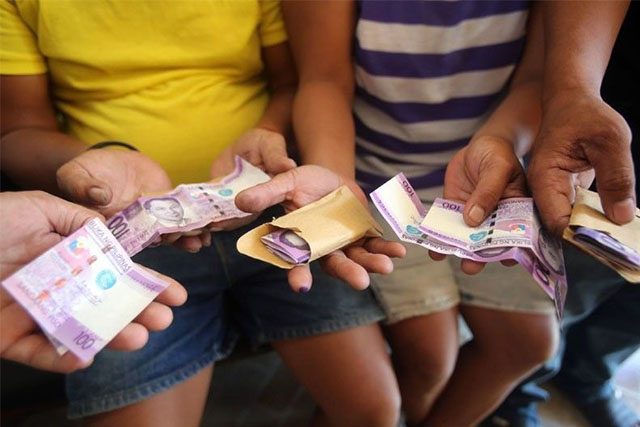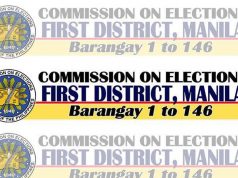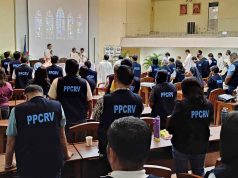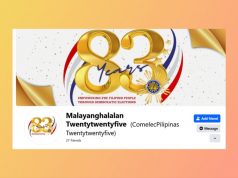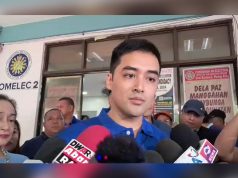An official of the Commission on Elections, voiced out his opposition against vote buying following Vice President Leni Robredo‘s previous remarks about it.
In a tweet on Wednesday, poll spokesperson James Jimenez said that the notion of accepting bribe money for votes is wrong and an election offense.
“I disagree with the notion of taking the money and voting according to your conscience. Vote buying is an election offense regardless of financial situation or noble intentions,” Jimenez said.
“Di dapat ginagawa, at di dapat sina-suggest yan sa mga botante,” he added.
I disagree with the notion of taking the money and voting according to your conscience. Vote buying is an election offense regardless of financial situation or noble intentions. Di dapat ginagawa, at di dapat sina-suggest yan sa mga botante.
— James Jimenez (@jabjimenez) October 26, 2021
The prohibition against vote-buying is stated under Section 261 of the Omnibus Election Code. It said that vote-buying and vote-selling refers to:
“Any person who gives, offers or promises money or anything of value, gives or promises any office or employment, franchise or grant, public or private, or makes or offers to make an expenditure, directly or indirectly, or cause an expenditure to be made to any person, association, corporation, entity, or community in order to induce anyone or the public in general to vote for or against any candidate or withhold his vote in the election, or to vote for or against any aspirant for the nomination or choice of a candidate in a convention or similar selection process of a political party.”
Vote buying activities, however, continue to plague Philippine elections until today.
In a virtual forum with household workers or kasambahays on October 26, Robredo was asked about her view about this perennial problem in the country.
She said that ordinary people can accept bribe money from a candidate but they should vote “according to their conscience.”
Her view sparked discussions on vote-buying and vote-selling practices on-the-ground on social media.
Robredo’s stance on vote buying
Robredo stressed that vote buying is wrong.
She later advised others on what to do if they are offered money in exchange for votes.
“Mali yung pagbibili ng boto, pero ‘yung sinasabi ko sa tao, tanggapin niyo. Parati kong sinasabi tanggapin niyo kasi galing rin naman ‘yan sa atin. ‘Yung pinambibili ng boto, pera din naman ‘yan ng taongbayan,” Robredo said.
The vice president also added that people should not vote for someone just because they owed something from the candidate.
“‘Wag kang boboto dahil pakiramdam mo mayroon kang utang na loob kasi tinanggap mo. ‘Di ba? ‘Yung sa akin, tanggapin ang pera, pero iboto sa konsensiya,” she said.
Discussions on social media
Some Filipinos criticized Robredo over this view. They perceived her condoning the illegal act instead of being firm against it.
“Crooked ‘practical measures’ cannot help in the tight control and law implementation. A leader must see the big picture and analyze system, do proper corrective measures and not adjust with the current reality of bad practices. I cannot accept this Ma’am Leni,” one user Facebook said.
Others, meanwhile, agreed with Robredo. They shared that these situations do happen every campaign season.
“I accept the money and write the candidate who offered it in my not to vote list. If I don’t accept it, they’ll just offer it to someone else who might really vote that candidate,” one user said.
Some users weighed in on the problem. They noted the struggle for some people to refuse if they really needed the money being offered.
“The practice isn’t legal, but it’s also unproductive to ignore the reality on the ground: we don’t have the same capacity to refuse,” sociologist Ash Presto wrote on Twitter.
“Vote-buying is a social ill, yes, and to think of it as a purely individual transaction is one of the ways that has kept it alive. But seriously, how can it be stopped? Money is a need and the elections is just another day,” a Twitter user said.

